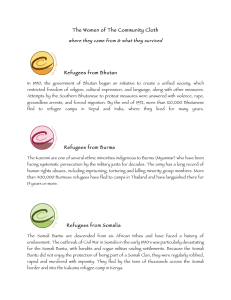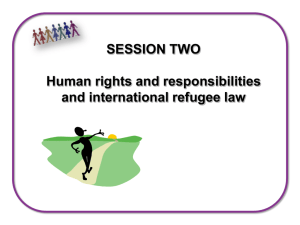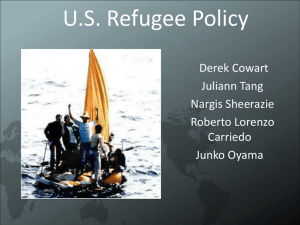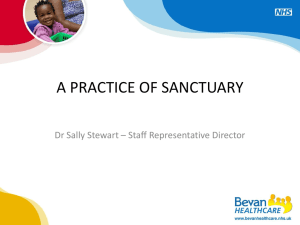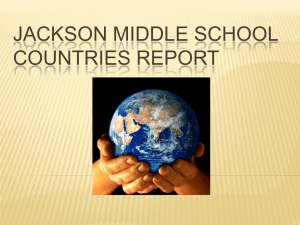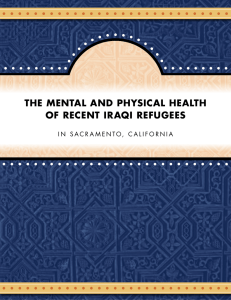Stephanie Thermora
advertisement
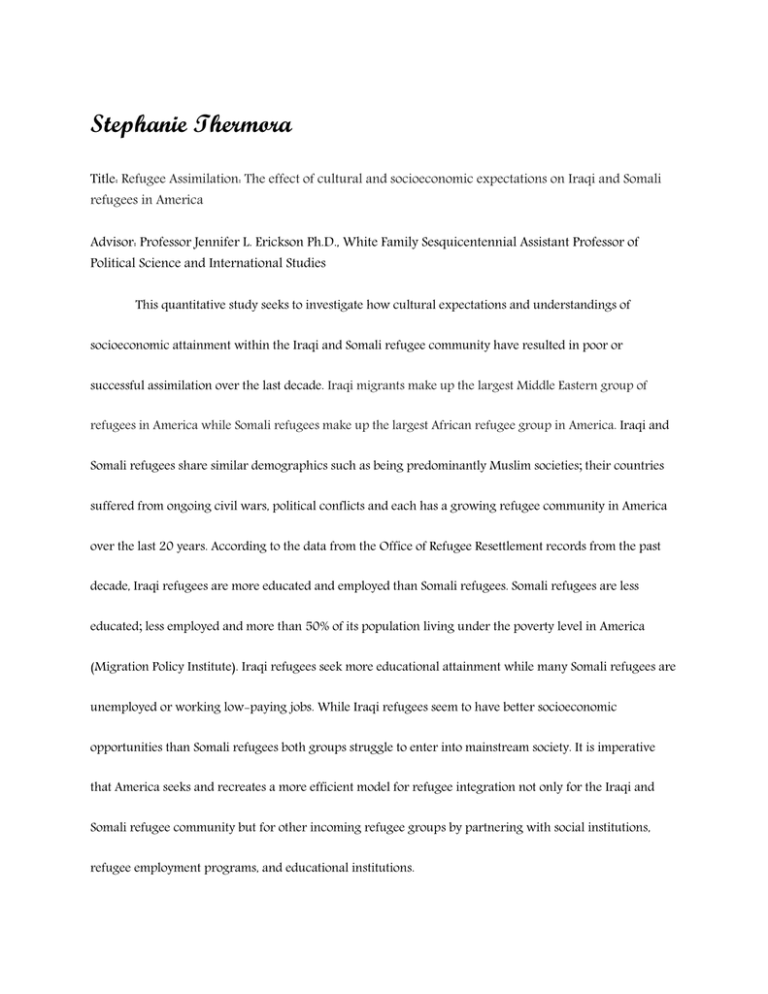
Stephanie Thermora Title: Refugee Assimilation: The effect of cultural and socioeconomic expectations on Iraqi and Somali refugees in America Advisor: Professor Jennifer L. Erickson Ph.D., White Family Sesquicentennial Assistant Professor of Political Science and International Studies This quantitative study seeks to investigate how cultural expectations and understandings of socioeconomic attainment within the Iraqi and Somali refugee community have resulted in poor or successful assimilation over the last decade. Iraqi migrants make up the largest Middle Eastern group of refugees in America while Somali refugees make up the largest African refugee group in America. Iraqi and Somali refugees share similar demographics such as being predominantly Muslim societies; their countries suffered from ongoing civil wars, political conflicts and each has a growing refugee community in America over the last 20 years. According to the data from the Office of Refugee Resettlement records from the past decade, Iraqi refugees are more educated and employed than Somali refugees. Somali refugees are less educated; less employed and more than 50% of its population living under the poverty level in America (Migration Policy Institute). Iraqi refugees seek more educational attainment while many Somali refugees are unemployed or working low-paying jobs. While Iraqi refugees seem to have better socioeconomic opportunities than Somali refugees both groups struggle to enter into mainstream society. It is imperative that America seeks and recreates a more efficient model for refugee integration not only for the Iraqi and Somali refugee community but for other incoming refugee groups by partnering with social institutions, refugee employment programs, and educational institutions.

